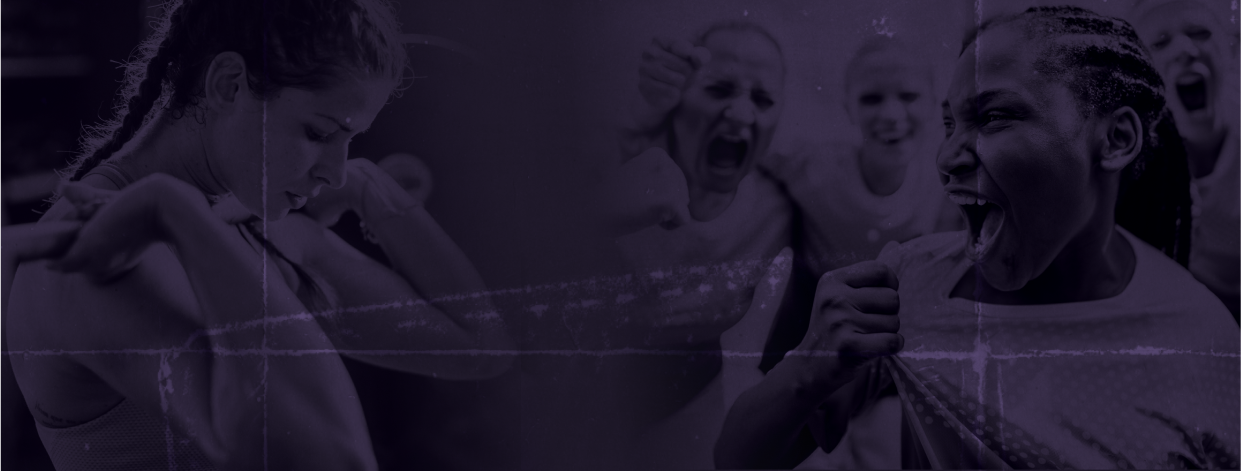On September 1, 2022, during a volleyball game against a rival North Carolina high school, 17-year-old Payton McNabb received a devastating head and neck injury as the result of a spike by a male athlete who identified as transgender. McNabb, a three-sport athlete who had plans to attend college on a softball scholarship, had no idea that would be her last day playing volleyball.
“Neither I nor anyone else on the team agreed with it [the transgender athlete being allowed to play] and were against it from the beginning. We were all just so confused by how it could be allowed, and I guess we just had no idea what to do,” McNabb said in an exclusive interview with IW Features.
The male athlete’s superior height and strength, McNabb said, forced her and her teammates to play “defensively” right from the start.
“We had to adjust our whole lineup and put our biggest hitter in the front row, and even with that, we couldn’t pass the ball back because he was hitting it so hard,” she said. “No one could even get a hand on it.”
One of the male player’s powerful spikes ended up knocking McNabb unconscious for more than 30 seconds toward the end of the game. While McNabb was lying on the floor, she was later told by onlookers that her body had twisted into a “fencing position,” which is indicative of extreme trauma to the brain.
“My coach’s wife kept trying to push my arms and legs down, but they kept coming back up. She had no idea what was happening,” McNabb said. Meanwhile, “the boy who hit me and the girls on his team were standing on the other side of the net laughing at me,” she said.
According to McNabb, few people took her injury seriously at first. Her trainer even told her to get back in the game right after the injury happened.
However, a later medical evaluation revealed that the ball’s impact caused neurological impairments, including a concussion, vision problems, and partial paralysis to the right side of her body. The year following her traumatic brain injury, was full of “blank spaces” that she’ll never remember, McNabb said.
This game fundamentally changed everything for the McNabb family, said her parents, Pamela and Daniel McNabb, in an exclusive interview with IW Features.
“The child that we raised for 17 years, the, the child that we knew … is gone,” Pamela said through tears.
In addition to the physical damage, Payton McNabb has suffered from long-lasting cognitive issues, losing the ability to drive for several months after the injury and needing help and accommodations for schoolwork because she can no longer retain information as she had before.
Despite these injuries, Pamela said her daughter is “still very headstrong” and the “strongest kid” she’s ever known in her life.
Payton McNabb’s unyielding and optimistic view on life has led her down a different path — one that has allowed her to find purpose in her suffering.
After her 18th birthday, McNabb made the decision to speak out publicly about her preventable injury. She testified at the North Carolina General Assembly in favor of the Fairness in Women’s Sports Act, which passed in August 2023 after a veto override by the state legislature. The bill prohibits male athletes from competing on most girls’ sports teams at the K-12 and collegiate levels.
McNabb’s testimony immediately went viral and put her on the map as an advocate for fairness in girls’ and women’s sports.
Since then, she’s become an ambassador for Independent Women’s Forum, advocating to protect girls’ and women’s sports and giving a voice to the women whose stories are ignored and whose injuries are dismissed by activists pushing gender ideology in sports.
“She’s not one to be a victim. She’s very proactive,” Pamela said of her daughter. “So we support her. She almost lost her life, like inches. And if it can happen to her, it can happen to anybody.”
McNabb’s story has already had a decisive impact. Without her injury to demonstrate the dangers of allowing men to compete in girls’ sports, for example, McNabb said she doesn’t think the Fairness in Women’s Sports Act would have passed in North Carolina. And as she and other IW ambassadors such as Riley Gaines and Paula Scanlan continue to draw attention to this issue, several more states have been motivated to pass or are in the process of adopting similar legislation.
“Maybe it [the injury] happened for a reason,” McNabb said.
There have also been critical legal strides made in the name of fairness for female athletes, such as the lawsuit Alabama v. Cardona, which challenges the Biden-Harris administration’s unlawful rewrite of Title IX, or the amicus curiae brief filed by Independent Women’s Forum and McNabb in support of USA Powerlifting’s decision to protect single-sex spaces in the sport.
“We’re not alone in that people do agree with us, and they are fighting just as hard, and all over,” McNabb said. “I know that what I am fighting for is the right thing.”
Note: This article was originally published in February and has been updated. Co-author credit to Ashley McClure.










